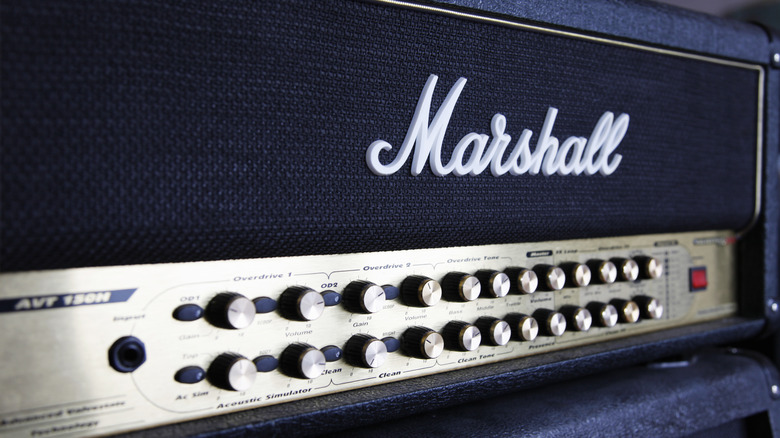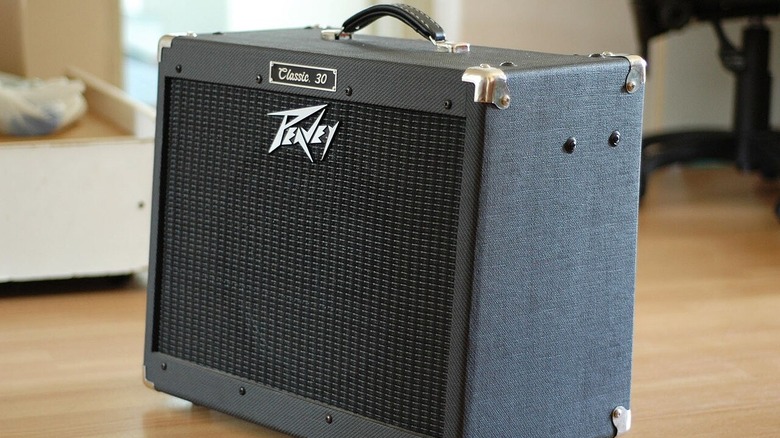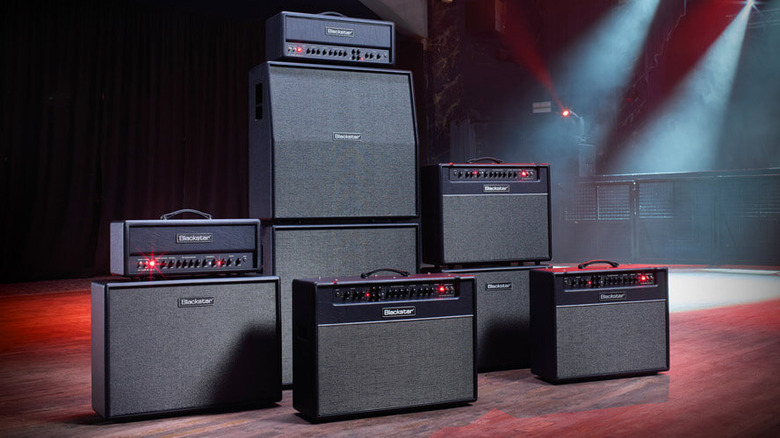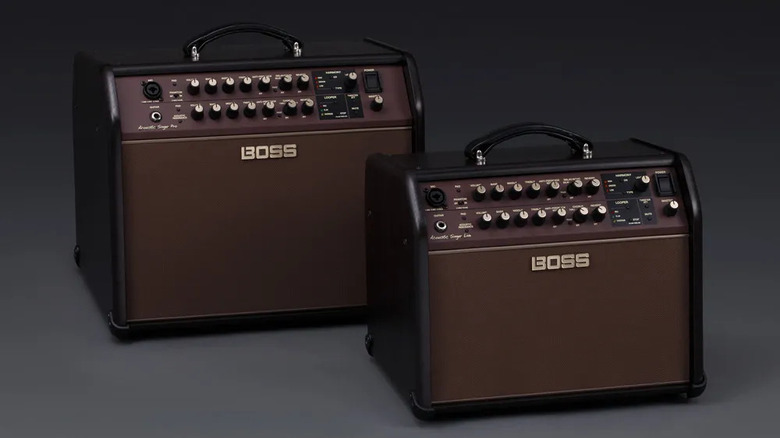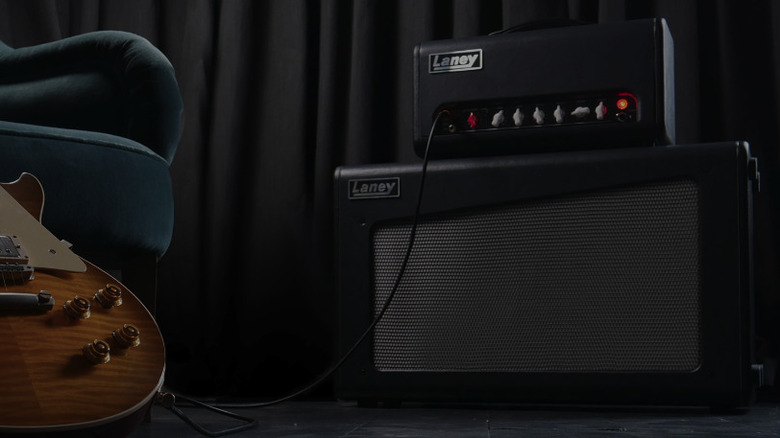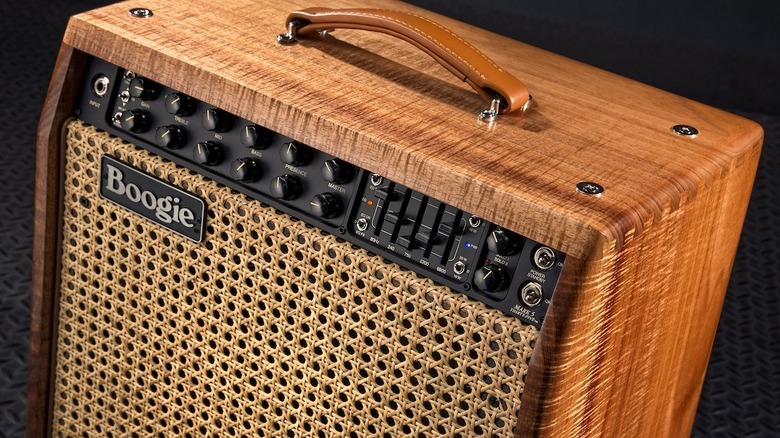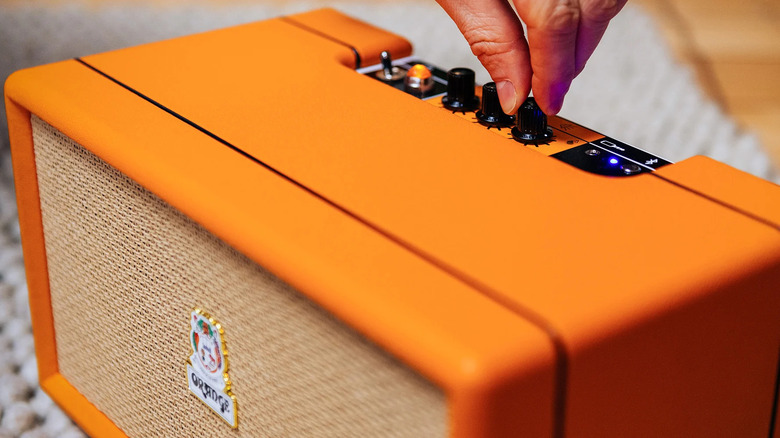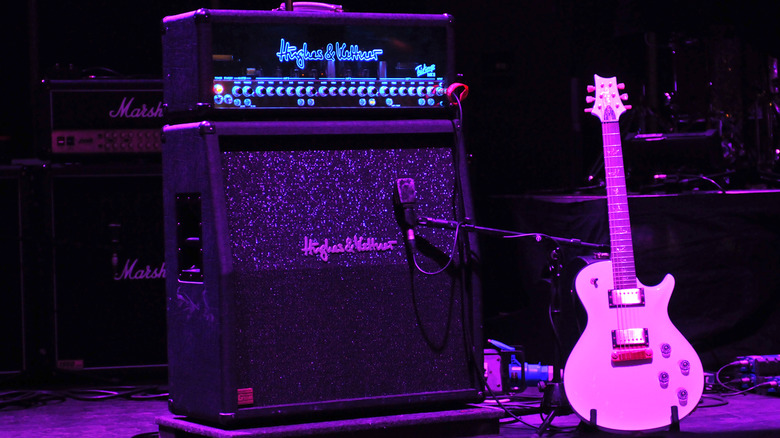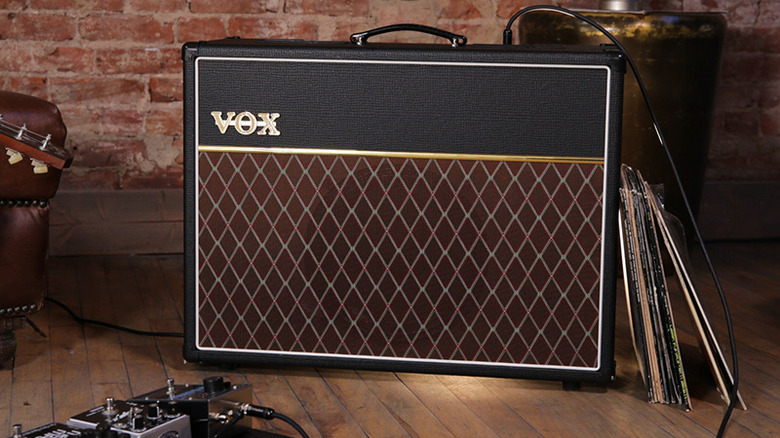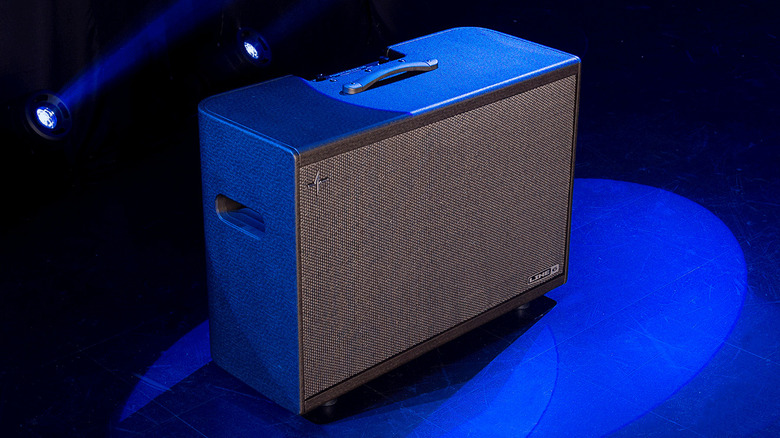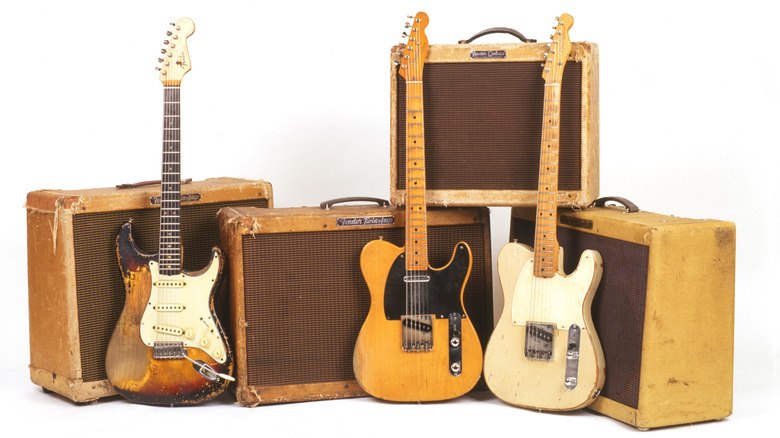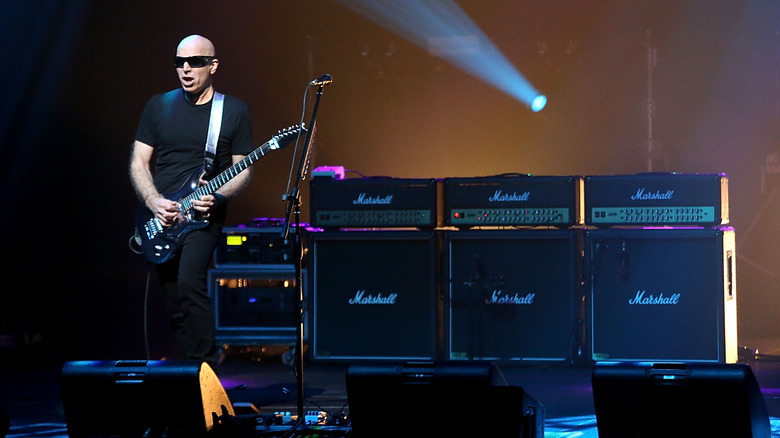Every Major Guitar Amplifier Brand, Ranked
Guitar amplifiers have been evolving since the early 20th century and the Jazz Age when stringed instruments demanded extra volume to compete with brass sections and prominent drums. Many amplifier brands have emerged in the intervening years that have helped shape the sound of modern music, and several of these are still major players within the industry.
Modern guitar amplifiers often incorporate amp modeling technology, app compatibility, and digital connectivity to provide far more versatility and sonic capabilities than ever before. Yet they remain fundamentally true to their origins, and even the most cutting-edge creations seek to replicate the classic tones we have come to love. These now-legendary sounds might include the crunchy Mesa/Boogie of Santana, Van Halen's driven Variac-modified Marshall, or the twangy Fender of Stevie Ray Vaughan.
The following top amp manufacturers have become part of our musical heritage. Whether we appreciate their tones consciously or subconsciously, they form an essential component within the rich tapestry of popular music. Here, we rank them considering their sound quality, product lines, technology, and reputation.
11. Peavey
Peavey amplifiers are respected for their durability and affordability, offering reliable performance across different musical genres. They've been a longstanding choice for musicians seeking quality gear without breaking the bank, and as a result, they are among the most popular choices by educational institutions the world over. One thing that appears to be lacking with Peavey amps is a definitive aesthetic across its range, and its logo looks a little dated, suggesting that the brand, as a whole, could use an overhaul.
The Peavey combo range is rather small for such an established company, and it is diverse without having any standout models. For example, the Peavey Classic 30 is undoubtedly a great-sounding little amp, but Fender's excellent Blues Junior has a comparable aesthetic and costs around the same. Similarly, the VYPYR X2 and X3 modeling amps are well-priced but inferior to their equivalent offerings from Boss and Line 6. Upgrade to Peavey amp heads and speaker cabinets, and the selection is better, with some premium options, such as the Buddha Mark Nason signature model, but this is around the same price as some of the boutique offerings from more high-end brands.
While Peavey amplifiers are undoubtedly well-made and sound good, there's no denying that they are niche, and there's a limited range. As such, it is the lowest-ranking brand on this list, but it does offer some of the best value models among the big-name manufacturers.
[Featured image by J c via Wikimedia Commons | Cropped and scaled | CC BY 2.0]
10. Blackstar
Blackstar amplifiers are relatively new to the industry but are increasing in popularity. The brand came to be when a group of experienced U.K. amplifier designers from some of the industry's biggest companies branched out on their own. They used their considerable expertise to create a product line based on affordability, high-quality tones, and built-in effects, making them a popular choice with both amateur and professional users alike.
The Blackstar range combines classic looks with contemporary features. Its miniature "Fly" range of ultra-portable amps is ideal for playing and practicing on the fly, and its "HT" and "Core" ranges offer affordable combos that are ideal for the studio or as part of your backline. Those looking for classic tones might consider the "St. James" and "Artisan" lines with their vintage styling.
Blackstar has built one of the most extensive product lines in its relatively short existence, and it offers something for everyone, from compact acoustic amps to bass rigs to 100-watt stacks. It may not have the heritage of established brands like Marshall and Fender or offer the boutique components of Hughes and Kettner or Mesa/Boogie, but as far as bang for your buck is concerned, this is a brand that deserves consideration. While it may place among the lowest on this ranking, there's no denying that Blackstar is going places.
9. Roland/Boss
Boss amplifiers (as a division of the Roland company) have been celebrated for their cutting-edge technology and exceptional sound quality ever since the company introduced the groundbreaking Roland JC-120 combo and ultra-portable Cube amps of the mid-late 1970s. While Boss was previously the guitar effects arm of the company and is still arguably the most prominent builder of effect pedals to this day, it has also become the dominant branch of amplifier research and development. It now boasts a quality range of high-tech stacks and combos in its extensive catalog.
With a focus on innovation and reliability, Boss amps are often used by musicians with diverse requirements. Its "Katana" range of workhorse amplifiers embraces modeling technology without being overly complicated, making them ideal for live performance. At the larger end of the scale, these are available as 100-watt heads or combos with 1x12 or 2x12 speaker configurations, which are more than powerful enough for on-stage monitoring or for playing smaller venues. There are also many smaller Katana models for desktop use, which are excellent additions to a DAW or home practice studio setup.
At the pro-audio end of the scale is the Boss "Nextone" range, which boasts multiple onboard effects and programmable audio patches for expert musicians to really sink their teeth into. These are built with the kind of rugged quality and usability that you might expect from Boss, especially if you use its stompboxes. While it's hard to fault any product that the Japanese company ever made, the Boss range generally lacks the legendary status and distinctive warmth of tone offered by some more established brands.
8. Laney
Laney amplifiers are known for their powerful and clear sound. While the company may be less well known, as compared to the likes of its compatriots Orange and Marshall, it may come as a surprise that this competitor has been around since 1967 and is one of the earliest brands to contribute to the British sound.
With an emphasis on clarity, Laney amplifiers appeal to various musicians across a broad range of musical styles. They've gained popularity for their durability and value, making them a solid choice for gigging players, and the range embraces tube technology to generate warm, smooth tones, often with multiple channel switching options. They ably tread the line between classic and contemporary styling and technology and even offer a range of nifty boutique effect pedals to help you get the most out of your amplifier.
Not only does Laney provide some impressive sound quality, but it is also one of the most visually appealing brands that offers more than a nod to the effortlessly cool styles of yesteryear. This is especially evident in its "Cub-Super" range of vintage amps that look like they were built in the 1950s with asymmetrical grilles, "chicken head" knobs, and chrome accents that belie modern electronics and features. Those looking for something a little different might consider checking out Laney's range, which ventures outside the usual black box aesthetic to bring us something a little different.
7. Mesa/Boogie
Like many pioneers of the music industry, Mesa Boogie's founder, Randall Smith, started his career modifying other equipment (in this case, Fender amps) in his small Californian workshop. The company was established as Mesa Engineering after his hometown, with the memorable moniker of "Boogie" added later. One early proponent of Smith's work was counterculture legend Carlos Santana, a relationship that endures to this day.
Anyone who has heard Santana's singing sustains and harmonically-rich driven tone will be familiar with the sound of a Mesa/Boogie amplifier. However, these are far from a one-trick pony. They are renowned for their exceptional build quality and rich sounds that cover a broad sonic spectrum. That helped to set a new standard in the world of high-gain amplification, originally saturated by British brands.
The Gibson guitar company has recently bought Mesa/Boogie, and its latest amplifiers are among the best-engineered and best-constructed that money can buy. Models like the Filmore, Badlander, and Triple Crown amp heads and combos deliver dynamic tones and limitless sound-shaping possibilities with their extensive equalizers and multiple channels. However, this quality doesn't come cheap, and Mesa/Boogie amps are priced accordingly, making it a midfielder in this ranking.
6. Orange
In the late 1960s, English electrical engineer Cliff Cooper introduced his original line of Orange amplifiers that went against the grain of the typical black, monolithic speaker cabinets of the day. By the early 1970s, Orange amplifiers were making waves with their distinctive vintage aesthetic, rugged design, and iconic British tone. They've since earned a strong reputation among rock and indie players, not just in their native U.K. but all over the world, helped by famous proponents including Stevie Wonder and Jimmy Page.
The Orange amplifier range consists of all-valve full stack units, half stacks, combos, such as the Rockverb, and solid-state units that emulate smooth valve-like tones, such as the "Crush" range of amplifiers. In addition to these, Orange produces the Pedal Baby power amp for direct connection to a backline and a new range of ultra-portable yet powerful micro amp heads and rack-mountable all-analog units.
Across its comprehensive range of guitar and bass amps, Orange is consistent in its hand-built quality and vintage style that endears it to its legions of fans. While the brand is undoubtedly successful, you get the feeling that each product is made with care as a bespoke piece of electrical engineering that is relatively simple in its construction but highly effective in its performance.
5. Hughes and Kettner
Formed in 1984, Hughes and Kettner is a relative newcomer to the world of guitar amplification, but it made up for lost time and quickly became a respected name within this competitive industry. The German company was founded by the Starmer brothers, who adopted the name to represent a budding guitarist (Hughes) and a skilled electrical engineer (Kettner), with an English and German ring to it.
Etymology aside, H&K products are immediately identifiable for being visually appealing and unlike any other brand on the market. Its backlit amp heads loom, ghostlike from the darkened corners of a stage, with neon control knobs and glowing valves that give them an ethereal appearance, which adds to their allure. Meanwhile, the limited combo range consists of a single 200-watt beast that combines all the best features of its renowned amp heads into a compact unit with a 12-inch Celestion G12H speaker.
Most importantly, Hughes and Kettner produce great-sounding amplifiers and speaker cabinets across its small but comprehensive range. These have attracted some major players, including Tommy Thayer from Kiss and Alex Lifeson from Rush, among a host of talented players representing many different types of modern music.
4. Vox
Vox amplifiers are synonymous with the British Invasion sound and are favored for their distinct tone and retro appearance. They are recognizable for their gold trim, lattice tweed speaker cloth, and white piping, and the brand has made significant contributions to rock and pop music, as used by the likes of Queen's Brian May, U2's The Edge, and members of Foo Fighters, to name a few.
While the Vox product line is relatively small, its amplifiers exude quality in both their sound and their construction. Its most successful amplifier is the AC30 combo, which provides 30 watts of power via two 2x12 Celestion Greenback speakers. Despite its compact size, this all-valve unit is surprisingly powerful and can be seen gracing the backlines of some of the world's largest stages. It has since been released in 10-watt and 15-watt versions, as well as an amp head to be used in conjunction with Vox 2x12 extension cabinets.
Despite its overall vintage appeal, Vox has recently been making inroads into new technology, with various combos that feature digital modeling functionality. These can include USB connectivity and be used alongside Vox's ToneRoom software for storing, editing, and accessing your sound library at the click of a button. As far as effortless style, build quality, and pureness of tone are concerned, few brands are better than Vox.
3. Line 6
Line 6 first received widespread attention after the release of its POD, a plug-and-play kidney bean-shaped amp, effect, and cabinet emulator that replicated the rigs and tones of many famed players and manufacturers. This technology has since been applied to its combo amps and stacks, and Line 6 continues to push the boundaries of sonic possibilities in its California laboratories.
Its amplifiers allow musicians to easily emulate various tones and effects, making them among the most versatile options for guitarists, as it's equivalent to owning a whole array of classic amps and effects in a single compact unit. Line 6's innovative product line includes the Spider series of combo amps and heads that can be used with the Powercab cabinet emulator range. There is also the more traditionally styled Catalyst range of amplifiers aimed at live performance with fewer features and straightforward operation.
Line 6 was bought by the Yamaha Guitar Corporation in 2015, but it still appears to have stuck to its core principles, and overall quality has not been affected. Its products have to be heard to be believed, and as anyone who has dialed up the "Cliffs of Dover," "Bohemian Rhapsody," or "Money for Nothing" patches will attest, Line 6 turns mimicry into an art form.
With real-world functionality like native software, digital connectivity, DAW compatibility, and stompbox-style effect units, Line 6 leaves no stone unturned in its quest to satisfy its large user base. While some brands could be accused of resting on their laurels on the back of their heritage and reputation, Line 6 continues to be a trailblazer that helped kickstart the amp modeling revolution. That's why it ranks highly on this list.
2. Fender
Leo Fender was to modern musical instruments what Nikola Tesla and Thomas Edison were to electrical engineering. As a true pioneer, he reimagined the electric guitar with models like the Telecaster, Stratocaster, and Precision Bass, created the Fender Rhodes electric piano, and put his name to some of the best guitar amplifiers ever invented.
Fender amplifiers are legendary and celebrated for their clean tones and versatility. They have defined the sound of blues, rock, and country music, making them a staple for musicians worldwide. Popular models include the original tweed units such as the Blues Junior, Hot Rod Deluxe, and Bassman, followed later by black-clad units such as the Twin Reverb and Princeton. Fender has always been a little more reserved than its hard rock counterparts, and it is best known for its combo amplifiers, which align with the brand's image for producing practical, workhorse instruments that put performance first.
While Fender does move with the times, as evidenced by its Mustang and Champion modeling amps, some of its best products are its tried and true vintage reissue classics. These use the same valve and solid-state electronics that gave the brand its distinctive sound since the 1950s, with the full-bodied and responsive character that is loved worldwide. While it may be better recognized for its iconic stringed instruments, Fender is still a major player within the amplifier segment and places second on this ranking.
1. Marshall
From its humble beginnings in 1960s London to providing the backline for some of the world's loudest performances, Marshall amplifiers have become iconic in the music world and are renowned for their powerful sound and instantly recognizable design. Ever since a young Pete Townshend asked Jim Marshall to place two 4x12 cabinets on top of each other, the Marshall stack has been much imitated, especially after a certain guitarist named Jimi Hendrix also adopted the trend.
Marshall amplifiers have since shaped the rock and metal genres, leaving an indelible mark on musical history. Eddie Van Halen famously used a Variac transformer with a stock 100-watt Marshall Super Lead head unit to create his "brown sound." Other users read like a who's who of the hottest players on the planet, including Slash, Eric Clapton, Jimmy Page, Angus Young, Jeff Beck ...the list goes on.
What makes Marshall so admired is its consistency in tonal quality and build quality across its extensive range. From its reissued valve combos and solid-state "DSL" units to its "Origin" line of luxury classic heads and tweed cabinets and the flagship "JVM" range of high-gain heads, cabs, and combos of the present-day, Marshall has an amplifier for every occasion.
While the company has lately dabbled in amp modeling with its "Code" product line and has a successful catalog of Bluetooth headphones and portable speakers, the name "Marshall" will always be associated with the big hair, big riffs, and even bigger sound that accompanied the evolution of rock and roll. As such, this monster of rock ranks highest on this list.
